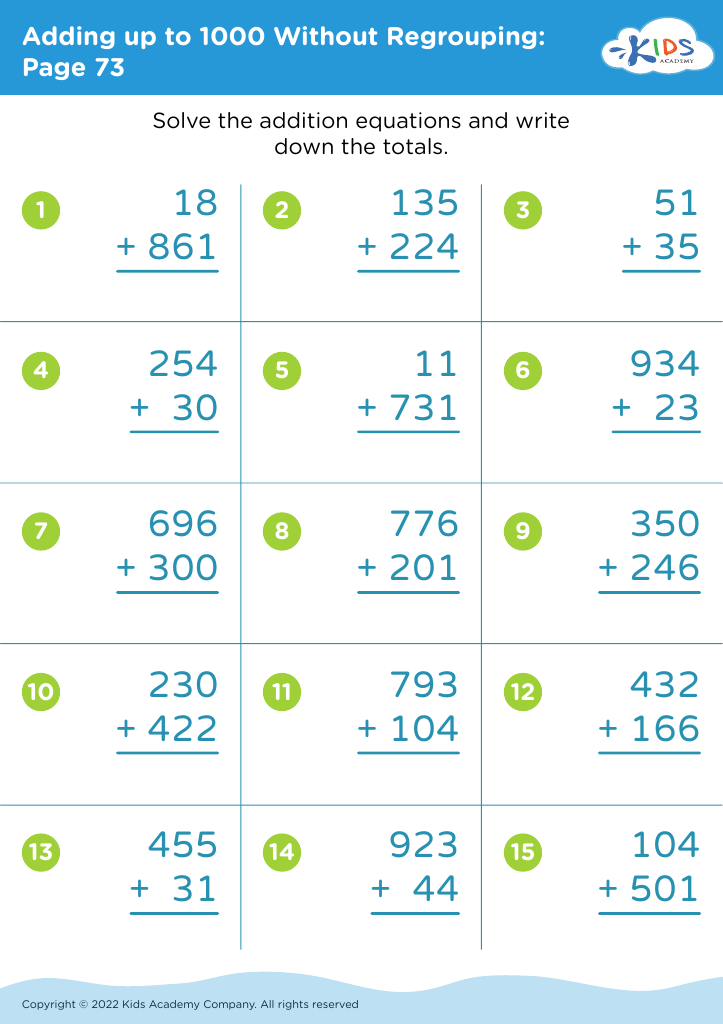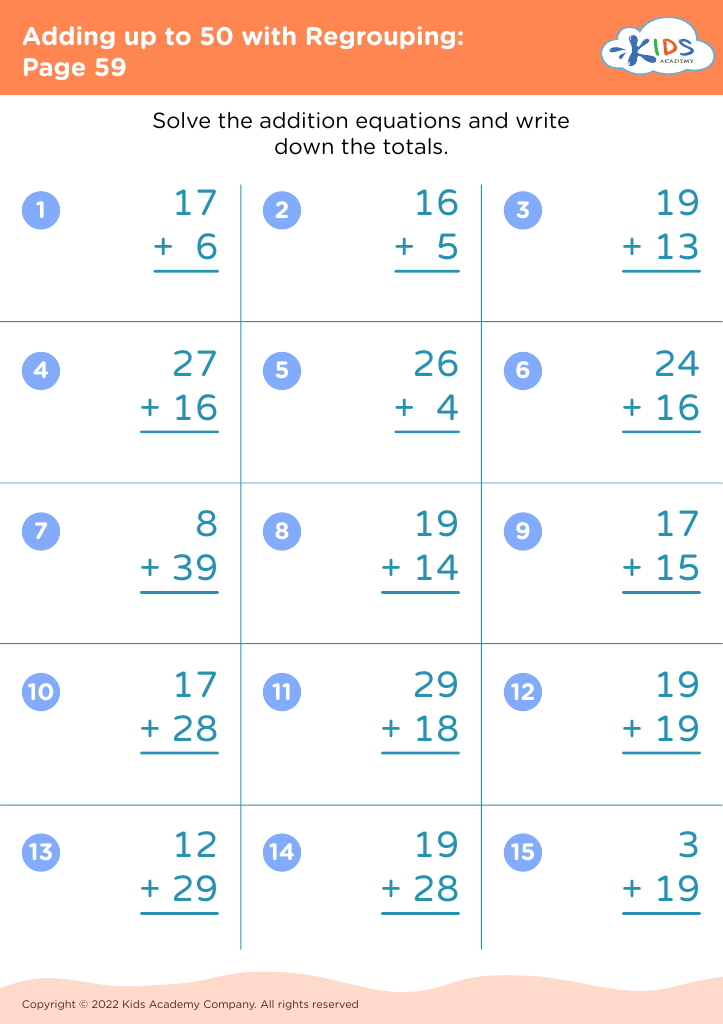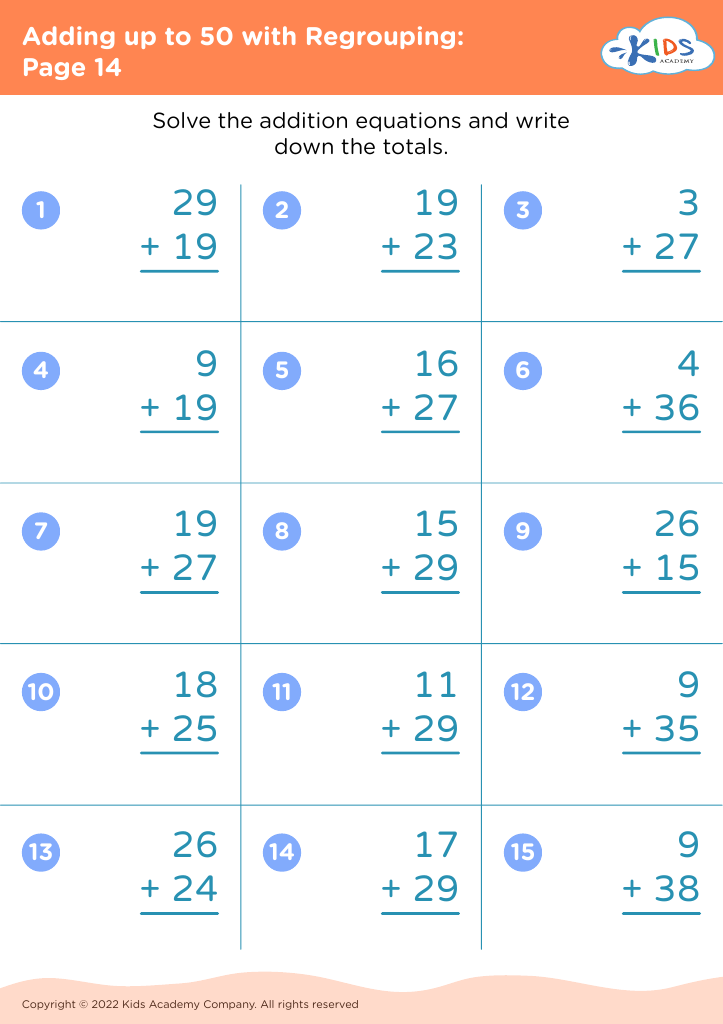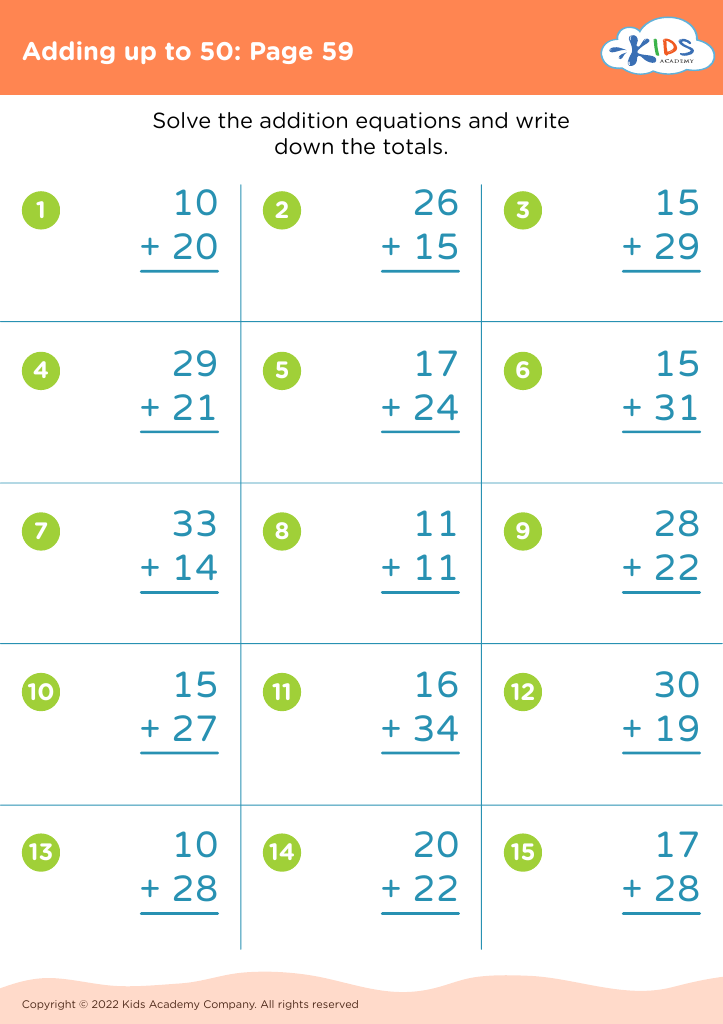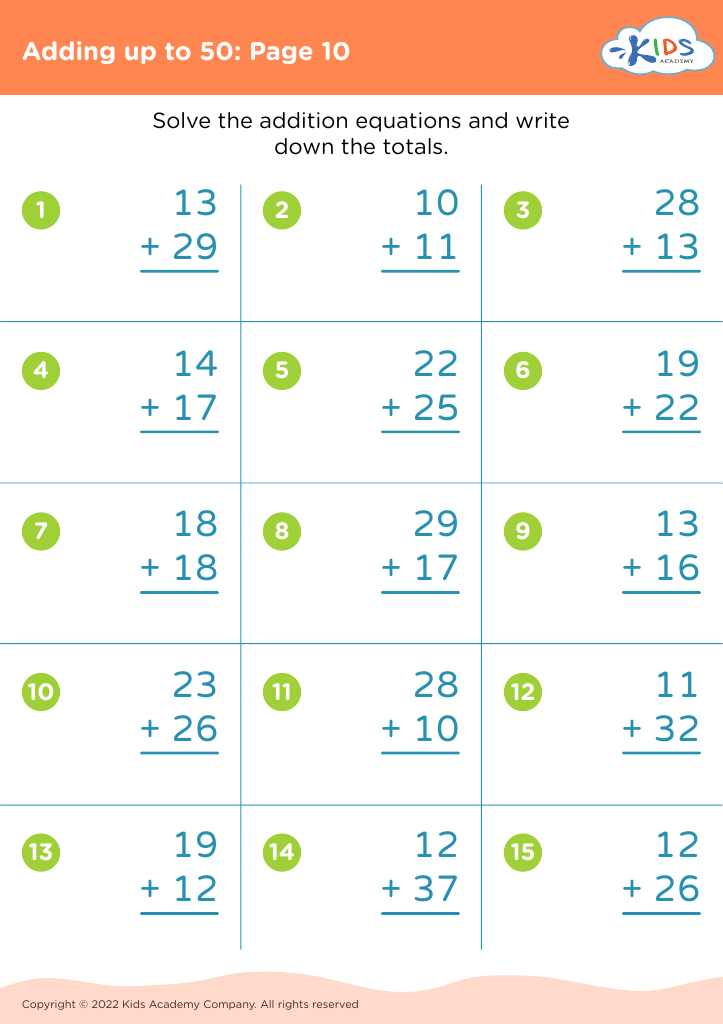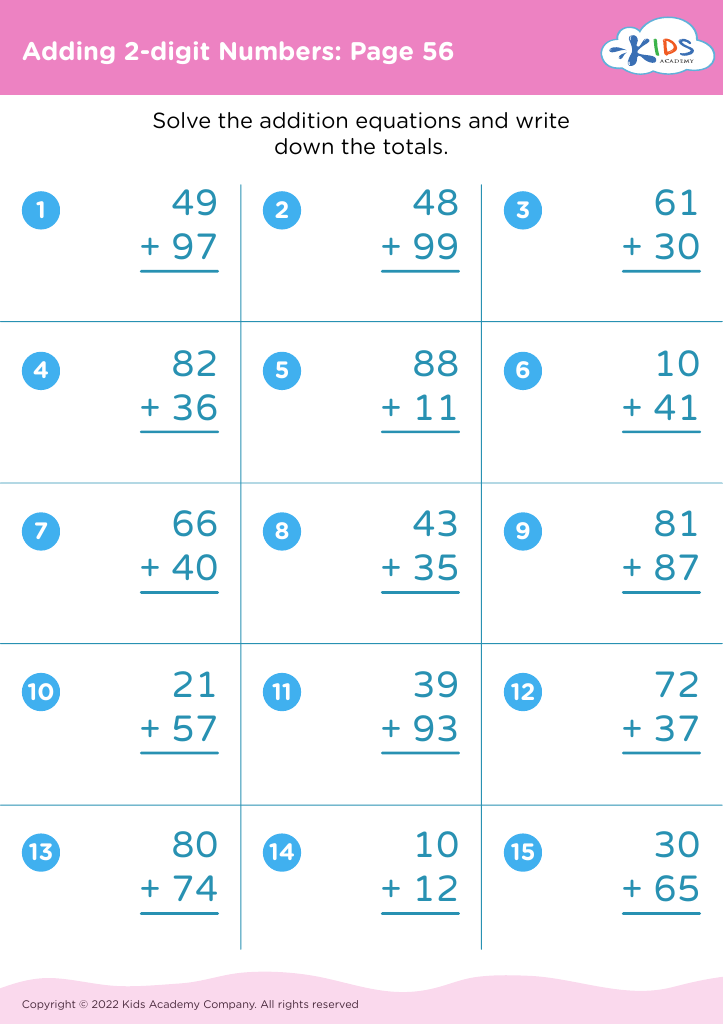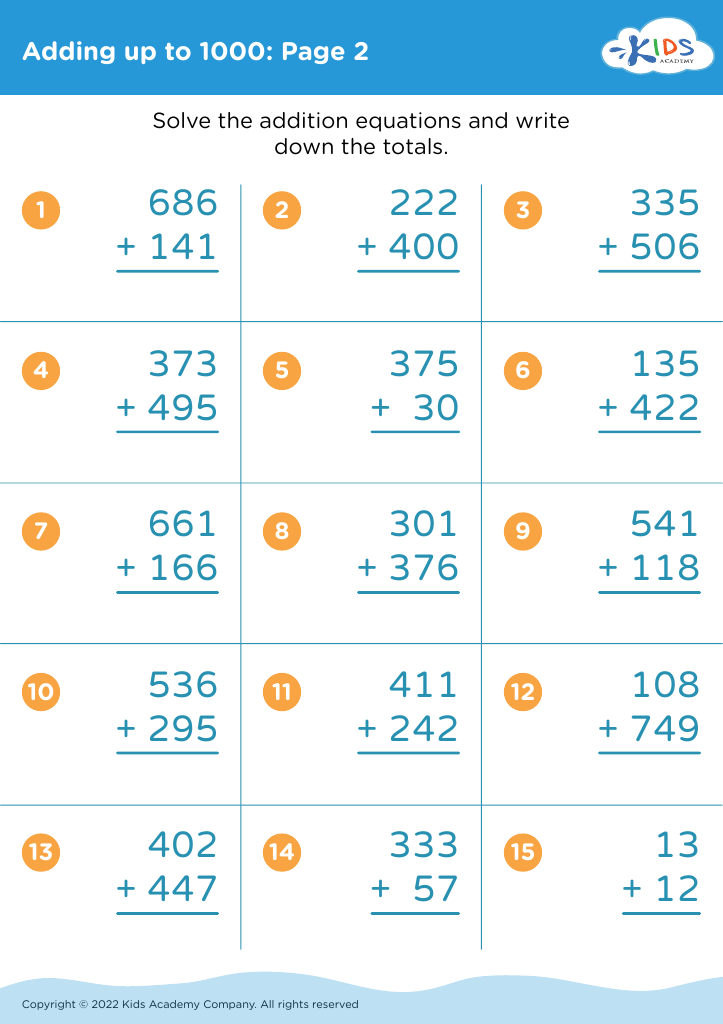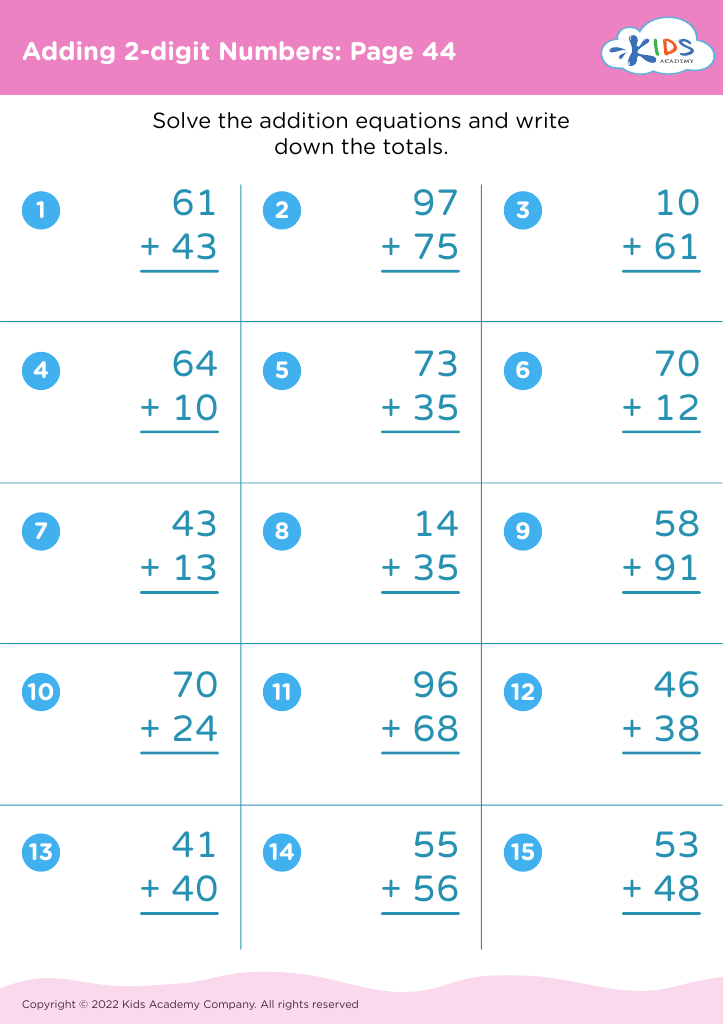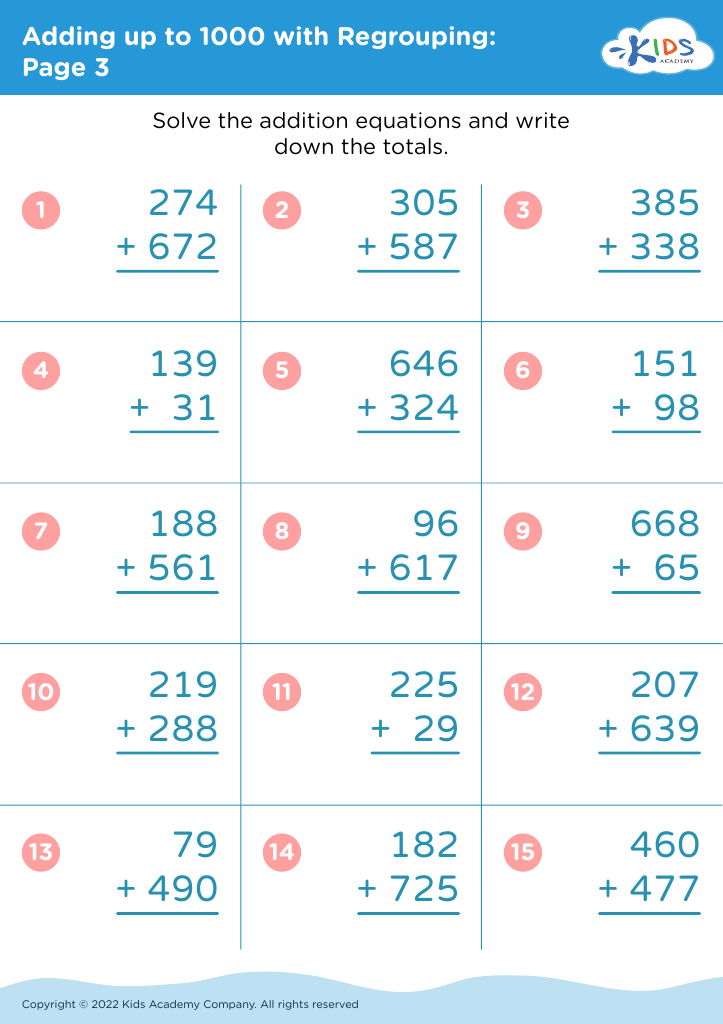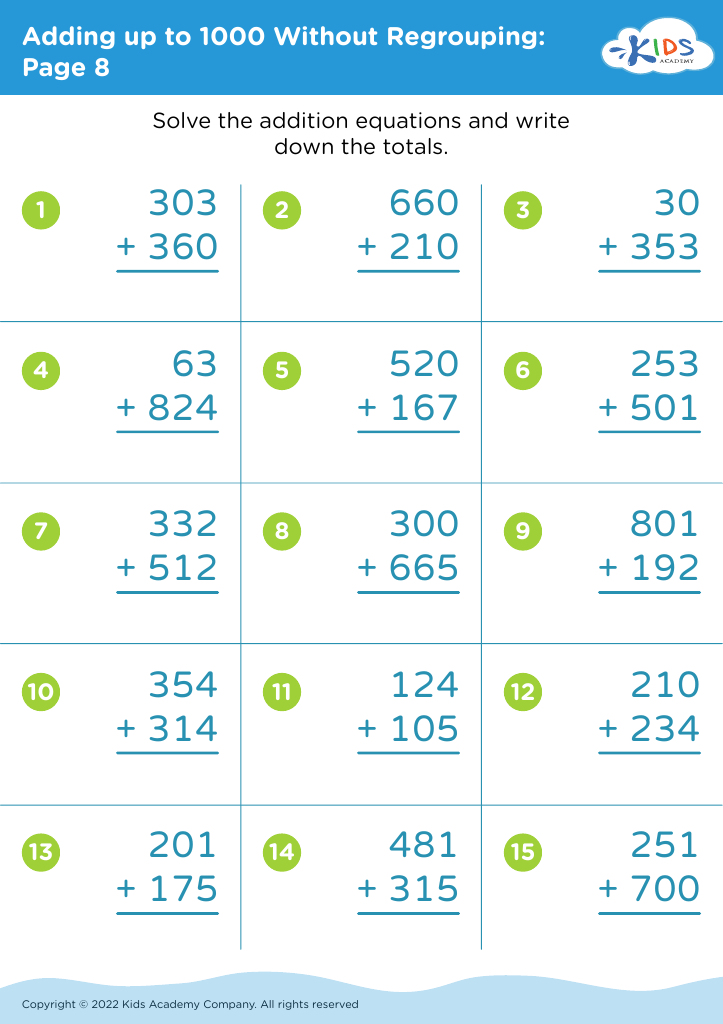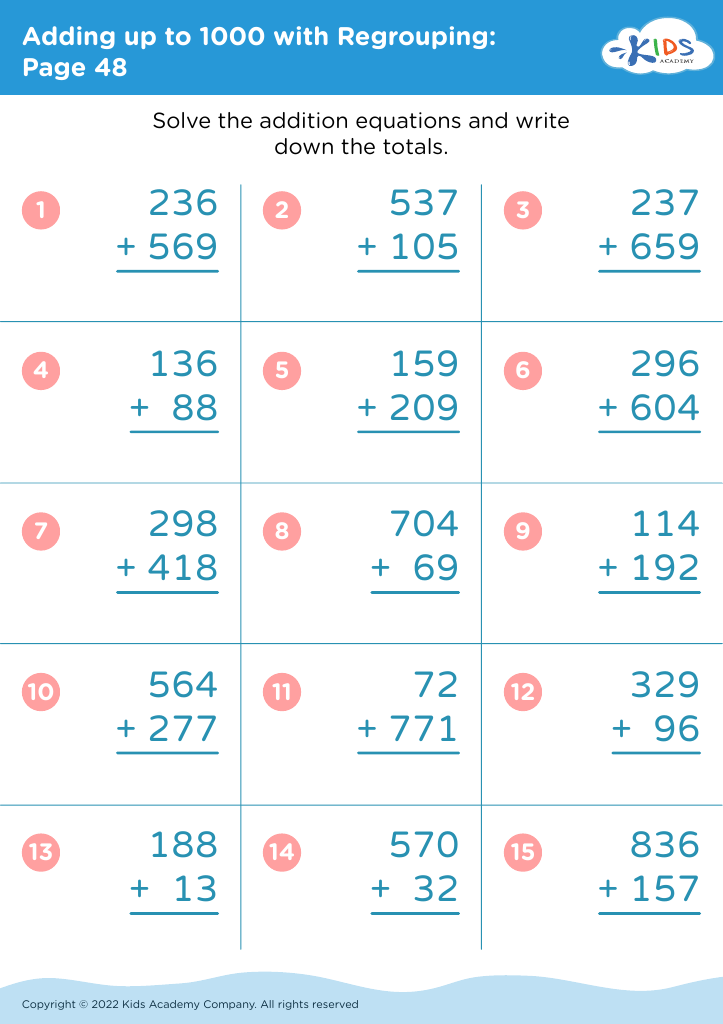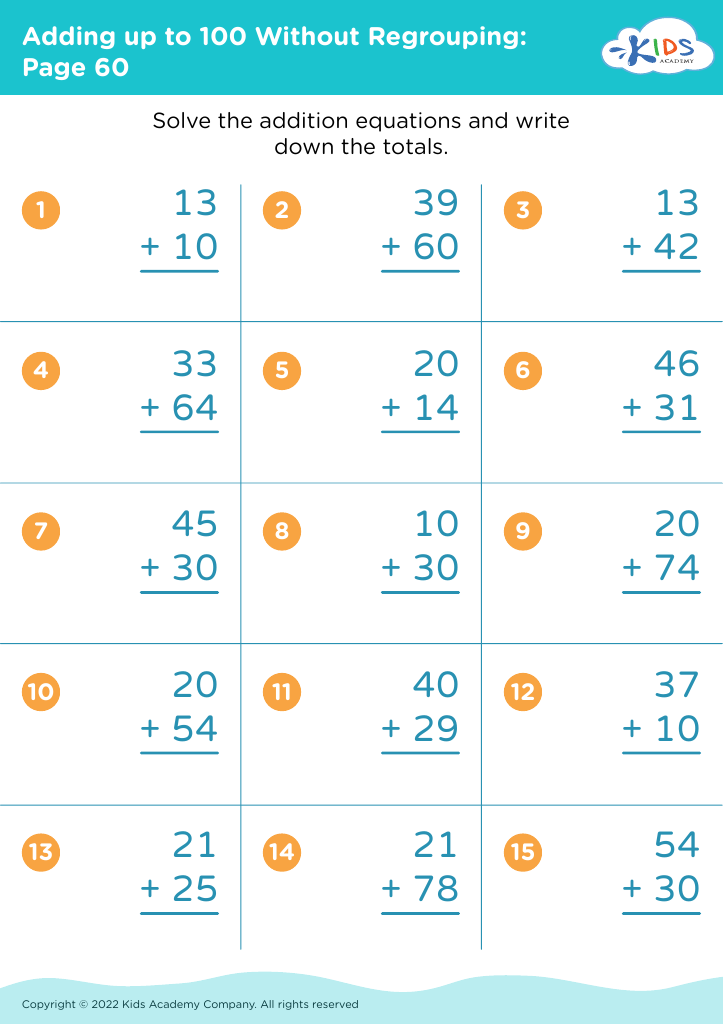Enhance comprehension Addition Worksheets for Ages 3-7
17 filtered results
-
From - To
Discover the perfect tool to boost young learners' math skills with our "Enhance Comprehension Addition Worksheets for Ages 3-7." Specifically designed for preschool and early elementary students, these worksheets offer engaging activities to solidify foundational addition concepts. Through colorful visuals and interactive tasks, children build confidence and improve their problem-solving abilities. Perfect for parents and teachers, our worksheets support hands-on learning both at home and in the classroom. Equip your child with the skills they need for academic success and make learning addition fun and exciting with Kids Academy!
Enhancing comprehension skills in children ages 3-7 is crucial for their overall cognitive development and academic success. At this formative stage, children are beginning to decode the world around them, and strong comprehension skills lay the foundation for effective communication, critical thinking, and learning across all subjects.
For parents and teachers, focusing on comprehension helps ensure that children understand what they read and hear, rather than just decoding words or memorizing facts. This deep understanding enables them to follow instructions, grasp new concepts, and engage meaningfully with educational materials. Enhanced comprehension also fosters a love for reading, which is directly linked to academic achievement.
Furthermore, developing these skills early can facilitate smoother transitions to more advanced tasks and reduce the risk of learning difficulties later on. It empowers children to ask better questions, make predictions, and draw connections between ideas, fostering a richer and more involved learning experience.
By emphasizing comprehension through engaging stories, interactive discussions, and educational games, parents and teachers can provide a supportive environment that encourages curiosity and critical thinking. Investing in these skills during the early years sets children on a trajectory for lifelong learning and success, making it a vital focus for anyone involved in their development and education.

